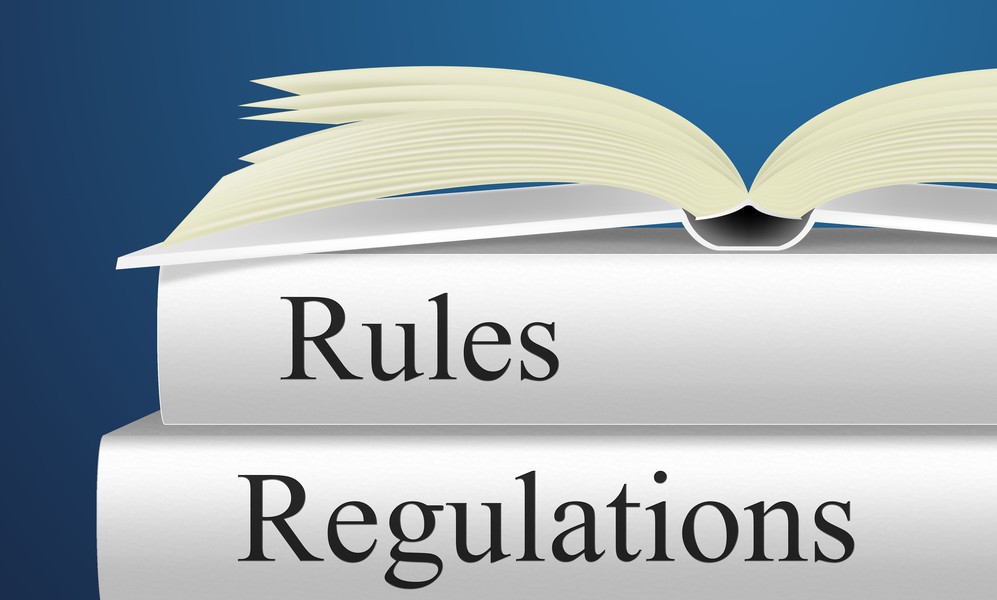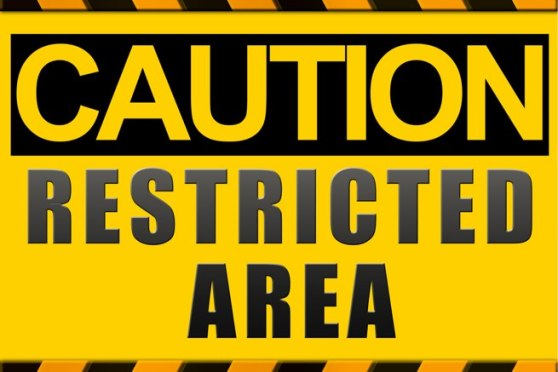JOBS Act l Research Analysts and Underwriters
On September 28, 2012, the Financial Industry Regulatory Authority, Inc. (“FINRA”) proposed rule changes to the Securities and Exchange Commission (the “SEC”), for NASD Rule 2711, which regulates the activities of research analysts. The proposals were made pursuant to the requirements of the Jumpstart Our Business Startups Act (the “JOBS Act”).
JOBS Act – Research Analyst Communications Read More
Securities Lawyers Gone Wild l Carl Duncan
On September 27, 2012, the SEC charged 8000, Inc. and Carl Duncan, Esq. for his role in a scheme to manipulate 8000, Inc.’s stock price. The SEC complaint alleges that certain defendants misrepresented 8000, Inc.’s financial condition to investors while simultaneously selling, or facilitating the sale of, the company’s securities in violation of the antifraud and securities registration provisions of the federal securities laws. Read More
Removing the Advertising Ban in Rule 506 Offerings
Rule 506(c) of Regulation D, enacted under the Jumpstart Our Business Startups Act (the “JOBS Act”) is intended to help smaller and emerging growth companies raise capital in the U.S. capital markets. The JOBS Act adds new sections to the Securities Act of 1933 (the “1933 Act”) and the Securities Exchange Act of 1934 (the “1934 Act”). The JOBS Act’s stated purpose is to assist small companies in raising capital. Less stringent requirements will encourage smaller companies seeking to raise capital to go public directly, without involving an underwriter, as traditional IPOs do.
In furtherance of this purpose, Section 201 of the JOBS Act requires the SEC to change regulations applicable to Rule 506 Attorneys of Regulation D of the Securities Act. Most notably, the JOBS Act removes the prohibition on general solicitation and advertisement by issuers that rely on Rule 506. Rule 506 is an exemption frequently used by private companies that go public directly on OTC Markets, and by hedge funds, private equity funds and venture capital funds. Read More
How Did the JOBS Act Change Mandatory Exchange Act Registration?
On April 5, 2012, President Obama signed the Jumpstart Our Business Startups Act (the “JOBS Act”), which is intended to help smaller and emerging growth companies access the U.S. capital markets. The JOBS Act amends, and adds new sections to, the Securities Act of 1933 (the “1933 Act”) and the Securities Exchange Act of 1934 (the “1934 Act”), as well as the Sarbanes-Oxley Act of 2002. Section 12(g) of the Exchange Act requires companies with more than $10 million in assets whose equity securities are held by more than 500 shareholders of record to file periodic reports with the Securities and Exchange Commission (the “SEC”). Read More
OTC Markets OTC Pink Disclosure Obligations
OTC Markets Group operates the world’s largest electronic inter-dealer quotation system. Broker-dealers use it to trade unlisted securities. OTC Markets assigns issuers to one of three tiers based upon the level of disclosure provided.
The OTC Pink is used to categorize issuers who do not file reports with the Securities and Exchange Commission (“SEC”).
The OTC Pink tier comprises three sub-categories: OTC Pink Current Information, Pink Limited Information, and Pink No Information.
Secondary trading of the securities of OTC Pink Sheet issuers is facilitated only between broker-dealers. They use OTC Link, OTC Markets’ electronic trading platform.
Current SEC reporting companies and non-U.S. companies that are listed on a qualified foreign stock exchange automatically qualify for the OTC Pink Sheets Current Information tier. Issuers not reporting with the SEC must subscribe to the OTC Markets Disclosure and News Service to be quoted on the OTC Pink Sheets Current tier, and must also publicly file an initial Information and Disclosure Statement with a signed Attorney Letter Agreement by the issuer’s SEC attorney.
Equity Crowdfunding 101- Going Public Lawyers
On April 5, 2012, President Obama signed the Jumpstart Our Business Startups Act (the “JOBS Act”), which is intended to help smaller and emerging growth companies access the U.S. capital markets. The JOBS Act amends, and adds new sections to, the Securities Act of 1933 (the “1933 Act”) and the Securities Exchange Act of 1934 (the “1934 Act”), as well as the Sarbanes-Oxley Act of 2002. The SEC had 270 days to enact the rules necessary to allow for crowdfunding. Once the SEC rules concerning equity crowdfunding are enacted, both private and public companies will be able to raise money from a broad range of investors using the Internet and social media.
Equity crowdfunding significantly impacts the securities laws governing private and public companies, and those that use traditional IPOs. The creation of the equity crowdfunding exemption from 1933 Act registration will not only provide a way for public and private companies to raise capital inexpensively, but will also ease the burden for many private companies seeking to go public directly by enabling them to more easily obtain the number of shareholders required to obtain a stock trading symbol. Read More
BP to Pay $525 Million to SEC – Securities Lawyer 101 – Go Public Blog
On November 15, 2012, the Securities and Exchange Commission charged BP p.l.c. with misleading investors by significantly understating the flow rate while its Deepwater Horizon oil rig was gushing into the Gulf of Mexico in 2010. The company did so in multiple reports filed with the SEC. The SEC alleges that the global oil and gas company headquartered in London made fraudulent public statements indicating a flow rate estimate of 5,000 barrels of oil per day. BP reported this figure despite its own internal data indicating that potential flow rates could be as high as 146,000 barrels of oil per day.
FINRA Issues Crowdfunding Rules
The Financial Industry Regulatory Authority (“FINRA”) has issued a voluntary form for prospective crowdfunding portals under the Jumpstart Our Business Startups Act (“JOBS Act”), signed in April 2012 by President Obama.
Anyone who intends to set up a crowdfunding portal for individual investments in start-up companies can voluntarily submit information to FINRA, which FINRA will use in drafting rules governing crowdfunding portals. The form is not definitive; FINRA will not adopt its final form until the SEC has adopted its own crowdfunding funding portal rules. Read More
Securities Exchange Act Registration Statements
All public companies whose securities are registered on a national securities exchange, and generally issuers whose assets exceed $10,000,000 with a class of equity securities held by 500 or more persons, must register their securities under Section 12 of the Securities Exchange Act of 1934 (the “Exchange Act” or the “1934 Act”). A 1934 Act registration statement requires disclosure of material financial and business information to investors and shareholders. The filing of an Exchange Act registration statement obligates the issuer to provide current public information by filing periodic reports and filings with the Securities and Exchange Commission (the “SEC”). Read More
SEC Tips l Ask Securities Lawyer 101
The Securities and Exchange Commission (“SEC”) frequently receives tips from whistlblowers. SEC tips from whistleblowers are provided in a variety of ways. The SEC tips are primarily received through the SEC’s online TCR form located at http://www.sec.gov/complaint.shtml or through direct contact with employees and staff at the SEC’s offices.
Upon receipt of what’s called a Form TCR, SEC tips are reviewed by the SEC’s staff for reliability, detail and potential violations of the federal securities laws. Read More
Filing Requirements for Publicly Traded Companies-Go Public
An issuer with a class of securities registered under Section 12 or subject to Section 15(d) of the Securities Exchange Act of 1934 must file periodic reports with the Securities and Exchange Commission pursuant to Section 13(a) and Section 15(d). The SEC requires a review of an issuer’s periodic reports at least once every three years and may review an issuer’s reports more often if it files a registration statement under the Securities Act, as a part of a review of the registration statement. Read More
What Are Form D’s Requirements? Going Public Lawyers
The most common exemptions used by companies to sell stock prior to going public are those promulgated under Section 4(2) of the Securities Act and Regulation D of the Securities Act. Many issuers who go public do not realize that a filing with the Securities and Exchange Commission (“SEC”) is required. While failure to file a Form D will not necessarily disqualify an issuer from relying upon Regulation D, the failure to file can increase the probability of comments to the issuer’s S-1 registration statement or Form 211.
A Form D filing is required by most states in order to comply with their own exemptions from registration. As such, any company conducting a Regulation D offering should consult with a securities attorney prior to accepting investor funds.
What Is a Form D?
Form D is a notice of an exempt offering of securities in reliance upon Regulation D (or Section 4(6) of the Securities Act).
What Does a Form D Require?
Form D requires specific information about the issuer and the offering it is conducting. The required information includes (i) the issuer’s identity, (ii) its principal place of business and contact information, (iii) state of domicile (iv) the names and addresses of its executive officers and directors, (v) the specific exemption claimed under the Securities Act, and (v) the identity and contact information of any broker-dealer, finder or other person receiving any commission or other similar compensation relating to the sale of securities in the offering.
Where Do I File the Form D?
The completed Form D must be filed with (i) the Securities and Exchange Commission (the “SEC”) if the issuer is relying on Rule 506 of Regulation D. Additionally, state blue sky laws may require the filing of the Form D along with a filing fee.
How Do I File the Form D with the SEC?
The SEC requires the electronic filing of Forms D through the SEC’s Electronic Data Gathering, Analysis and Retrieval System (“EDGAR”). To use EDGAR, the issuer must have its own filer identification number (called a “Central Index Key” or “CIK” number) and a set of access codes.
An issuer obtains a CIK number and EDGAR access codes by submitting basic information to the SEC online at its Filer Management page along with a copy of a notarized paper document containing the same information found on the Form D. The paper document is called an “authenticating document,” which can be submitted either (i) by scanning and uploading it to the online submission in PDF format or (ii) by faxing it to the SEC at (202) 504-2474 or (703) 914-4240.
There is currently no electronic filing with the States and where required, the issuer must file the Form D with an applicable State securities commission in hard copy.
When Must the Form D be Filed?
The Form D must be filed with the SEC no later than 15 calendar days after the “date of first sale” of securities sold based on a claim of exemption under Rule 504, 505 or 506 of Regulation D or Section 4(6) of the Securities Act. For this purpose, the “date of first sale” is the “date on which the first purchaser is irrevocably contractually committed to purchase the securities.” If the date on which the Form D is required to be filed falls on a Saturday, Sunday or holiday, the applicable due date is the first business day following.
Is the Information in a Form D Publicly Available?
Yes, all Forms D filed through EDGAR will be available for public viewing in an interactive and searchable format on the SEC’s website immediately upon filing.
Does the Form D Have To Be Amended?
The Form D must be amended (i) to correct a material mistake of disclosure, as soon as practicable after the discovery of the mistake; (ii) to reflect a change in certain reported information (including any change in the issuer’s directors or officers), as soon as practicable after the change; or (iii) “annually, on or before the first anniversary of the most recent previously filed notice, if the offering is continuing at that time.”
The Form D need not be amended to reflect a change that occurs after the offering terminates. Moreover, certain changes in reported information are deemed not to trigger an amendment, including (i) changes in the issuer’s revenues or aggregate net asset value; (ii) changes in the amount of securities sold in the offering (or the amount remaining to be sold); or (iii) changes in the total number of investors who have participated in the offering.
For further information about this securities law blog post, please contact Brenda Hamilton, Securities Attorney at 101 Plaza Real S, Suite 202 N, Boca Raton, Florida, (561) 416-8956, by email at [email protected] or visit www.securitieslawyer101.com. This securities law blog post is provided as a general informational service to clients and friends of Hamilton & Associates Law Group and should not be construed as, and does not constitute, legal advice on any specific matter, nor does this message create an attorney-client relationship. Please note that the prior results discussed herein do not guarantee similar outcomes.
Hamilton & Associates | Securities Lawyers
Brenda Hamilton, Securities Attorney
101 Plaza Real South, Suite 202 North
Boca Raton, Florida 33432
Telephone: (561) 416-8956
Facsimile: (561) 416-2855
www.SecuritiesLawyer101.com
Rule 504 Q & A l Securities Lawyer 101
What Is Rule 504?
Rule 504 of Regulation D is an exemption from the registration requirements of the Securities Act of 1933, as amended (the “1933 Act”) for certain companies when they offer and sell securities.
How Much Money Can I Raise From Investors In A 504 Offering?
The aggregate amount raised for an offering of securities under Rule 504 cannot exceed $1,000,000, less the aggregate offering price for all securities sold within the twelve months before the start of and during the offering of securities under this Rule 504, in reliance on any exemption under section 3(b), or in violation of section 5(a) of the Securities Act. The issuer can, however, issue as much stock as he likes for that $1 million: 10 shares or 10 billion; it makes no difference. Read More
SEC Registration & the Emerging Growth Company
The JOBS Act makes it easier for issuers who qualify as an emerging growth company to go public direct by exempting them from certain federal securities regulations, by reducing certain SEC reporting requirements. The JOBS Act creates a new category of “emerging growth company” which is defined as a company with annual gross revenues of less than $1 billion during its most recently fiscal year.
The SEC Issues Alert For Reverse Mergers
On June 9, 2011, the Securities and Exchange Commission (the “SEC”) issued an Investor Bulletin (the “Bulletin”) cautioning the public about risks associated with issuers that enter U.S. markets through reverse mergers with public shell companies.
In the news release announcing the Bulletin, Lori J. Schock, the Director of the SEC’s Office of Investor Education and Advocacy was quoted as saying, “Given the potential risks, Read More
The Securities Exchange Act of 1934
The Securities Exchange Act of 1934 (the “Exchange Act”) grants broad authority to the Securities and Exchange Commission (“SEC”) to oversee the securities industry. The SEC’s authority includes the power to register, regulate, and overseebrokerage firms, transfer agents, and clearing agencies; as well as securities self regulatory organizations (SROs), including the Financial Industry Regulatory Authority (“FINRA”). Read More
Securities Lawyers Gone Wild l Cameron Linton
On September 14, 2012, the Securities and Exchange (SEC) announced today that the United States District Court for the Middle District of Florida entered final judgments against Christel S. Scucci (“Scucci”), her mother Karen S. Beach (“Beach”), their companies Protégé Enterprises, LLC (“Protégé”) and Capital Edge Enterprises, LLC (“Capital Edge”), and their attorney Cameron Linton, Esq. (“Linton”). According to the SEC Charges, Linton was involved in a scheme to unlawfully acquire and sell shares of penny stock that were never registered for sale to the public, in violation of Section 5 of the Securities Act of 1933 (“Securities Act”).
FINRA Rule 6490 – Going Public Attorneys
Significant changes to FINRA Rule 6490 were enacted in September 2010. Though FINRA’s principal mandate is to regulate broker-dealers, historically it has always exercised some oversight of the over-the-counter markets. Part of that oversight involves processing corporate action requests from issuers of equity and debt securities not listed on national securities exchanges. In the past, these requests were always granted, even when inappropriate or submitted late. These changes to Rule 6490 have put an end to that: a nominal fee is charged for all requests, and issuers who are later to notify will be fined. In certain specific circumstances processing of notices under Rule 6490 may be denied altogether.
The actions of which FINRA must be notified are: name changes, forward stock splits, reverse stock splits, distributions of cash or securities, reinstatement of dormant public shell companies, spin-offs and other actions, and rights and subscription offerings. In the text of the new rule, FINRA notes that the SEC is concerned that “certain parties” may attempt to use corporate action requests to further fraudulent activities.
Issuers that file timely notice of a corporate action pursuant to Rule 6490 pay a fee of $200. Filing late can, however, have considerable impact on small issuers, resulting in a fee of up to $5,000 for a notification after an effective date. Read More
Are Rule 504 Shares Free Trading? Securities Lawyer 101
Rule 504 (“Rule 504”) of Regulation D of the Securities Act of 1933, as amended (the “Securities Act”) provides an exemption from the registration requirements of the federal securities laws which allows issuers to offer and sell up to $1,000,000 of their securities in any 12-month period. Rule 504 is frequently misused to create illegal free trading shares.
As discussed below, fraudsters attempt to make an “end run” around Rule 504 requirements by improperly relying upon state statutes in Delaware, Wyoming, New York and Texas which have been the subject of various SEC enforcement actions. The abuses surrounding Rule 504 are so widespread that the SEC has brought numerous enforcement actions against attorneys rendering legal opinions. Read More
SEC Proposes New Rules Regarding General Solicitation and Advertising in Rule 506 Offerings
On August 12, 2012, the SEC proposed amendments to Rule 506 of Regulation D of the Securities Act of 1933, as amended (“Regulation D”) that would allow issuers to use general solicitation and advertising in certain private securities offerings. The proposals were mandated by the JOBS Act, and will allow the use of general solicitation and advertising in offerings made pursuant to Rule 506, as long as all purchasers of securities in the offering are accredited investors as defined in Rule 501(a) of Regulation D of the Securities Act.About Rule 506 Offerings. Read More
Regulation FD and Social Media l Securities Lawyer 101 l Blog
On May of 2012, Francesca’s Holdings Corporation announced the termination of its Chief Financial Officer after an internal investigation concluded he had improperly communicated non-public company information over Twitter, which included a tweet that said “Board meeting. Good numbers = Happy Board” during the quiet period prior to the company’s contemplated earnings release.
What Causes a DTC Chill? Going Public Lawyers
The Depository Trust and Clearing Corporation (“DTCC”), through its subsidiaries, provides clearing, settlement and information services for securities. DTCC’s subsidiary, the Depository Trust Company (“DTC”) was created to improve efficiencies and reduce risk in the clearance and settlement of securities transactions. Not all securities are eligible to be settled through DTC and issuers must satisfy the criteria set by DTCC to be settled through DTC. All public companies- SEC reporters and non-reporters alike- are subject to these rules. Once they qualify, they must continue to meet DTC standards in order to maintain eligibility. Read More
Payment Disclosures by Resource Extraction Issuers l Securities Lawyer 101 Blog

On August 22, 2012, the Securities and Exchange Commission (“SEC”) adopted a final rule pursuant to Section 1504 of the Dodd-Frank Wall Street Reform and Consumer Protection Act (“Dodd-Frank”) that requires companies engaged in the development of oil, natural gas, or minerals (“Resource Extraction Issuers”) to disclose information. Read More
Industry Guide 7 l Mining Company Disclosures
In their SEC filings, in addition to the disclosures required by Regulation S-K and 20F, mining issuers must include the disclosures required by Industry Guide 7. All U.S mining companies that are SEC filers are required to report under its rules. Although there is widespread discontent with the guide among mining professionals, so far the SEC has been resistant to calls for change. The guide is divided into three sections. The first contains definitions. These definitions include the terms “reserve,” “proven (measured) reserves,” and “probable (indicated) reserves.” Generally, the SEC prohibits the disclosure of quantitative estimates for all mineral deposits other than proven and probable reserves unless such information is by foreign or state law. Guide 7 also defines the three stages of mining as “exploration,” “development” and “production” Read More
What Is a Transfer Agent ? Going Public Lawyers
A shareholder of any company can own securities and transfer the ownership of those securities. Their ownership is reflected on the issuer’s shareholder list. A transfer agent’s role is to issue and cancel certificates to reflect changes in ownership of securities and to act as an intermediary for the company. A registrar’s job is to maintain the issuer’s register for each issuance, transfer or cancellation. A registrar records the name, address and tax identification or social security number of each individual and entity holder. Typically the transfer agent and registrar are the same entity. Read More
Securities Attorney Kelly Rogers Indicted for Role in Oil and Gas Scam
Securities Lawyers Gone Wild Series
In May 2012, Kelly Rogers, a Texas attorney specializing in oil and gas, was indicted by the state for stealing $2.8 million from people he persuaded to invest in a company called Falcon Energy. He was charged with money laundering, theft of property, and securities fraud. This was not Kelly Rogers’ first rodeo. He was earlier sued for fraud in connection with a Louisiana gas and oil scam; in 2007 he was sanctioned by the SEC for his role in a Ponzi scheme involving high-yield bank debentures that would supposedly yield 25% a month interest. At that time, Rogers was a managing member of a company called Level Par Investments, which was also a target of the SEC enforcement action. Ironically, his fellow managers forced him to resign for stealing money from them as well as from investors. Read More
SEC Trading Suspensions 101 l Securities Lawyer 101
Over a year ago, the Securities and Exchange Commission (“SEC”) in an initiative known as Operation Shell-Expel, the Securities and Exchange Commission (“SEC”) suspended the trading in 379 shell companies in an effort to prevent the companies from being hijacked by fraudsters and used in reverse mergers scams. Over the last few weeks, the SEC has suspended an additional 75 issuers. The trading suspensions sent brief shock waves through reverse merger Pennyland. Read More
SEC Issues 379 Trading Suspensions
On May 14, 2012, the Securities and Exchange Commission issued trading suspensions of 379 dormant companies. The SEC’s press release explained that the suspensions were necessary to prevent the dormant companies from being hijacked by fraudsters and used to harm investors through reverse mergers or pump-and-dump schemes.
This move is a highly publicized comprehensive enforcement action ever taken by the agency in a single day. Observers who check the SEC litigation pages each morning were left open-mouthed at the sight of a very long list of targeted companies. They ranged from former exchange-listed issues like Cray Computers, Fruehauf Trailer, and Smith Corona-all once household names-to obscure penny stock scams like Firamada Inc., and Stratcomm Media.
Regulation A & the JOBS Act l Going Public Attorney
On April 5, 2012, President Obama signed the Jumpstart Our Business Startups Act (the “JOBS Act”), which is intended to help smaller and emerging growth companies access the U.S. capital markets. The JOBS Act amends, and adds new sections to, the Securities Act of 1933 (the “Securities Act”) and the Securities Exchange Act of 1934 (the “Exchange Act”), as well as to the Sarbanes-Oxley Act of 2002.
What Is An Emerging Growth Company?
 On April 5, 2012, President Obama signed the Jumpstart Our Business Startups Act (the “JOBS Act”) into law. Title I of the JOBS Act, which became effective as soon as it was signed into law, amends the Securities Act of 1933 (Securities Act) and the Securities Exchange Act of 1934 (Exchange Act) and creates the Emerging Growth Company as a new category of issuer under federal securities laws. Read More
On April 5, 2012, President Obama signed the Jumpstart Our Business Startups Act (the “JOBS Act”) into law. Title I of the JOBS Act, which became effective as soon as it was signed into law, amends the Securities Act of 1933 (Securities Act) and the Securities Exchange Act of 1934 (Exchange Act) and creates the Emerging Growth Company as a new category of issuer under federal securities laws. Read More

































